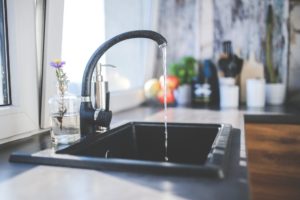
The average American family uses about 300 gallons of water each day. From flushing the toilet and taking showers to washing hands and cleaning, most of this water flows down into our drains. But we don’t always stop to think about everything else that we require our drains to handle – dirt, food, soap, and many other materials. Over time, these substances build up and cause slow drainage and clogs. Luckily, Solution Based Plumbing, Heating, and A/C has tips for drain cleaning Philadelphia area residents will benefit from.
DIY Tips for Keeping Your Drains Clear
- Treat your drains gently so that residue doesn’t build up. Try to stop hair and dirt by using a strainer, and never pour grease down the drain.
- Using an enzyme-based cleaning agent can help to break down organic waste. Treating your drain regularly with this type of cleaner is safer and gentler than using a chemical-based cleaner that may be hard on your drains and on the environment. Enzymatic cleaners help to remove odors and destroy mold and bacteria. However, they work more slowly than chemical-based cleaners or professional treatments.
- Regular maintenance can slow down those tricky clogs. One method requires just three household ingredients: baking soda, white vinegar, and boiling water. Pour ½ cup of baking soda into the drain, followed by ½ cup of white vinegar. Quickly cover the drain and keep it covered for 15 minutes. Finally, pour some boiling water down the drain. This method can be used regularly to neutralize odors and clear light residue without damaging your drain.
- When clogs do form, you can try to clear them with tools such as a plunger or plumbing snake. These tools can help with clogs that are close to the surface and easy to dislodge. Tougher clogs may require the attention of a professional plumber.
Professional Drain Cleaning: Philadelphia Area
These tips are great for a homeowner trying to maintain clear drains. However, there are some signs that you should seek out a professional plumber:
- Stubborn odor: There is an odor that will not dissipate after using the suggestions above.
- Empty or overflowing toilet: The tank is not filling or the bowl is near overflowing.
- Low water pressure: There is a weakening in the usual flow of water.
- Slow draining: Water is taking longer and longer to drain.
- Backflow: Water is flowing back out of one drain as you use another.
- Standing water: The water is not draining at all.
If you notice any of these issues, contact the professionals at Solution Based Plumbing, Heating, and Air Conditioning. Our experienced plumbers have the experience and knowledge to clear out any drain. For drain cleaning Philadelphia Area residents trust, call our team today!
